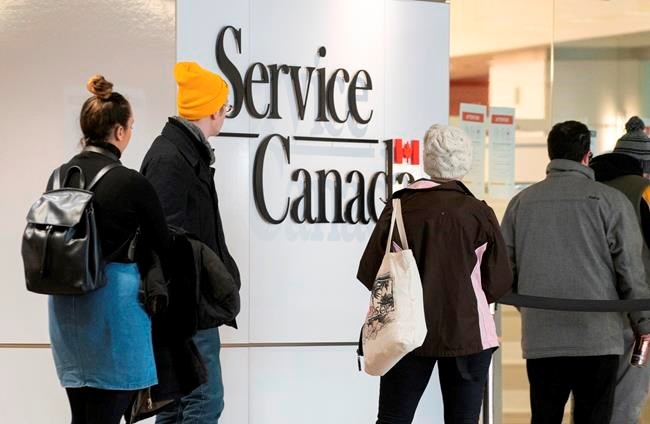TORONTO — Canadians who have lost their jobs due to COVID-19 and are struggling to make ends meet anxiously awaited promised federal help on Wednesday as the countrywide pandemic toll climbed toward the 3,000 mark.
Ontario reported 100 new cases — its largest single day jump — bringing the provincial total to 688, including nine of the 28 dead nationally.
With governments implementing stiff restrictions aimed at slowing the epidemic and avoiding crushing an already stressed health-care system, an unprecedented number of people have seen layoffs and job losses over the past week. Close to one million new applications for employment insurance have been reported, much higher than average.
The brutal jobs reality was apparent in a new poll: Close to half of those asked reported they or someone in their house had lost work because of the outbreak. Another 18 per cent of Canadians polled by the Angus Reid Institute showed as many said they expected to lose work soon.
More than half who said they had lost work said their employers were not compensating them and as many said trying to get employment insurance had proven difficult.
The federal cash bill, passed in the early hours after wrangling between the government and Opposition, and is awaiting Senate approval. The legislation allows direct government support for people and businesses hurt by the closure of commercial life as well as tax deferrals.
At the same time, the government said it would spend $50 million as part of a United Nations initiative to help the world's most desperate people fight the pandemic.
"The world is connected," International Development Minister Karina Gould told The Canadian Press. "Whatever happens over there, far away, is something that can very easily come to our doorstep."
Experts say the virus causes mild flu-like symptoms in most people but can lead to life-threatening pneumonia in others: particularly the elderly and those with less optimal health. Besides frequent hand-washing, the best defence is "social distancing" — avoiding contact with others.
To ensure as little inter-personal contact as possible, provinces and local governments have taken increasingly urgent steps to force people to stay home. Quebec and Ontario, for example, have ordered all non-essential businesses shut down. Across the country, much of normal daily life has ground to a halt.
In Newfoundland, a woman arrested in Corner Brook for violating public health orders to self-isolate for 14 days was to appear in provincial court Wednesday. She faces a fine of up to $2,500 or jail sentence of up to six months.
The mass layoffs resulting from the restrictions have left numerous people without paycheques as April 1 looms. Residential tenants and landlords have called on the federal and provincial governments to offer some kind of relief before rent cheques are due. Manitoba has suspended rent increases and joined several other provinces in effectively halting evictions due to non-payment of rent.
Global Affairs Canada said Wednesday 93 emergency loans of up to $5,000 were being made to Canadians stranded abroad and in need of financial help. Another 380 applications were being processed. With much of international commercial aviation grounded, special repatriation flights from various countries have been continuing, with more expected in the coming days.
Almost 120,000 Canadians have now been tested for COVID-19 — an average of about 10,000 a day. Some labs have reported a testing backlog due to diminishing supplies of essential chemicals. The World Health Organization says widespread testing is needed to curb the pandemic, but global demand has outpaced the supply of the specific chemicals needed.
This report by The Canadian Press was first published on March 25, 2020.
Colin Perkel, The Canadian Press




